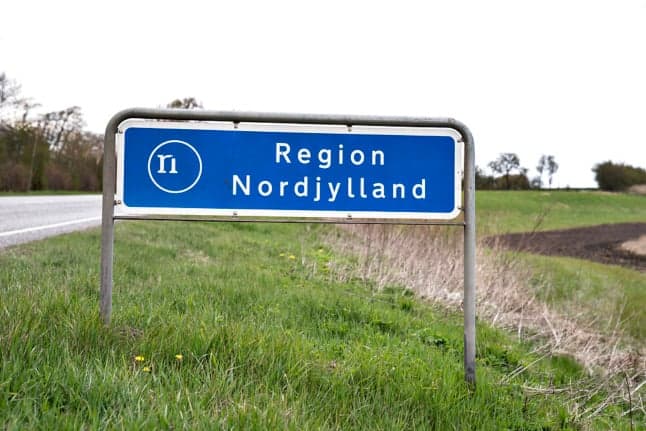What’s the difference between a municipality and a region in Denmark?

Voters on Tuesday decide the makeup of local Danish governments in both municipalities and regions. What is the difference between the two and should it affect how you vote?
On Tuesday’s ballot are candidates for municipal and regional councils. There are 98 municipalities and five regions and foreign residents make up almost 1 in 11 eligible voters for the elections.
READ ALSO:
- Danish local elections: Six cities set for nail-biting votes for mayor
- How to vote as a foreign resident in Denmark’s local elections
- Danish local elections: Covid-19 safety measures to be used on polling day
Municipalities (kommuner)
Denmark is organised into 98 different municipalities of varying sizes, for which municipal councils are elected every four years.
The primary task of municipalities is local administration of welfare and social needs. This encompasses social services, primary schooling and childcare, infrastructure, transportation, and tasks defined as integration of refugees and immigrants.
Other municipal areas include employment (such as running job centres), culture and leisure, setting up businesses, initiatives for children and young people, and city and rural fixtures and fittings.
In the municipal elections, candidates from various parliamentary, as well as independents and non-parliamentary, parties represent locally-tailored needs broadly in line with the ideology of the national party they represent.
Regions (regioner)
The job description for regions involves healthcare, welfare, and social development.
The names of the five regions (Greater Copenhagen, Zealand, North Jutland, Central Jutland and South Denmark) are most commonly associated with hospital care and health care. If you want to know which region you’re in in Denmark, you’ll find its logo at the entrance to most hospitals or public health facilities.
Regions – and their elected boards – administrate public hospitals and the GP system. They also orchestrate regional mass transit and manage initiatives to create economic growth.
As with the municipal elections, regional elections are held every four years with council members elected to the various governing bodies. The five regions each encompass a larger number of municipalities.
“Most local politics are about very local issues,” Jakob Nielsen, editor-in-chief of Danish political news outlet Altinget, told The Local at an election briefing.
“Vote as you would in any election for those you trust to do the most for the schools or the elderly, or to steer the local economy in a responsible way,” Nielsen said.
Comments
See Also
On Tuesday’s ballot are candidates for municipal and regional councils. There are 98 municipalities and five regions and foreign residents make up almost 1 in 11 eligible voters for the elections.
READ ALSO:
- Danish local elections: Six cities set for nail-biting votes for mayor
- How to vote as a foreign resident in Denmark’s local elections
- Danish local elections: Covid-19 safety measures to be used on polling day
Municipalities (kommuner)
Denmark is organised into 98 different municipalities of varying sizes, for which municipal councils are elected every four years.
The primary task of municipalities is local administration of welfare and social needs. This encompasses social services, primary schooling and childcare, infrastructure, transportation, and tasks defined as integration of refugees and immigrants.
Other municipal areas include employment (such as running job centres), culture and leisure, setting up businesses, initiatives for children and young people, and city and rural fixtures and fittings.
In the municipal elections, candidates from various parliamentary, as well as independents and non-parliamentary, parties represent locally-tailored needs broadly in line with the ideology of the national party they represent.
Regions (regioner)
The job description for regions involves healthcare, welfare, and social development.
The names of the five regions (Greater Copenhagen, Zealand, North Jutland, Central Jutland and South Denmark) are most commonly associated with hospital care and health care. If you want to know which region you’re in in Denmark, you’ll find its logo at the entrance to most hospitals or public health facilities.
Regions – and their elected boards – administrate public hospitals and the GP system. They also orchestrate regional mass transit and manage initiatives to create economic growth.
As with the municipal elections, regional elections are held every four years with council members elected to the various governing bodies. The five regions each encompass a larger number of municipalities.
“Most local politics are about very local issues,” Jakob Nielsen, editor-in-chief of Danish political news outlet Altinget, told The Local at an election briefing.
“Vote as you would in any election for those you trust to do the most for the schools or the elderly, or to steer the local economy in a responsible way,” Nielsen said.
Join the conversation in our comments section below. Share your own views and experience and if you have a question or suggestion for our journalists then email us at [email protected].
Please keep comments civil, constructive and on topic – and make sure to read our terms of use before getting involved.
Please log in here to leave a comment.